- Home
- Jason Starr
Fake I.D. Page 2
Fake I.D. Read online
Page 2
I wasn’t hungry, but I decided I needed something to bite into, to let out my aggravation, so I got on line to buy a hamburger. A few seconds later, I turned around and saw Pete, standing at the counter, squirting catsup onto a hot dog. I made a U-turn, heading toward where they were showing the dog races. I knew I couldn’t dodge him forever. The place wasn’t very big and if they were lucky they had three hundred people today.
I never won betting on dogs, but I opened the Plain-field program anyway. I bet fifty to win on the number five and then watched the five get wiped out by another dog on the first turn. Cursing, ripping up the ticket, I went back to the concession stand and saw that Pete was gone. Thank fuckin’ God. After I downed two burgers, I counted my money. I had $216 in my wallet, but I had to save at least twenty bucks for gas and tolls back to the city. I decided that I’d bet a hundred on the horse I liked in the second at Aqueduct and play with whatever money I had left for the rest of the day.
I went to the bathroom and took a leak. I was by the sink, splashing cold water against my face, when I looked straight ahead, into the mirror, and saw Pete coming up behind me. In the bright fluorescent light the mole on his chin looked bigger, and the hairs growing out of it were darker. He wasn’t wearing his wool cap anymore. His black and gray hair was curly and messy.
“How’s it goin’?” he asked.
“All right,” I said.
“I was looking for you before,” he said. “I couldn’t find you anywhere so I figured you took off.”
I unwound some paper towel and started wiping my face.
“I’m still here,” I said.
“I can see that,” he said. “So how you doing? Catch any winners so far?”
I didn’t want to tell him that I was losing my balls.
“Hit a few things,” I said.
“Wish I could say the same,” Pete said.
“Your luck’s gotta change eventually.”
“So where you hanging out?” Pete asked. “Maybe I’ll come by and visit.”
“I’m just walking around a lot,” I said. “I’m not sitting anywhere.”
Now I could tell he got the hint.
“Whatever,” he said. “Maybe we’ll bump into each other later on.”
In the mirror, I watched Pete leave the bathroom.
I bet the Aqueduct race, putting one hundred to win on the ten horse and then I bet another fifty in exactas with the ten on top of a few other horses. The ten broke good out of the gate, then dropped back and closed late, missing by a head. I screamed at the TV and kicked a garbage can so hard a security guard came over and told me if I did that again he’d have to toss me.
Now I only had sixty-six dollars left, including gas-and-toll money. I knew this wouldn’t be enough to last me the rest of the day so I got on line at the ATM to take money off my Visa card. There were four guys ahead of me. They looked like degenerates, wearing dirty jeans, sneakers, and old winter jackets. Then I thought, How was I any better? Wasn’t I on the same line, waiting to take money off my credit card? A couple of minutes ago I probably looked like even more of a loser, kicking that garbage can and screaming like a maniac.
I only had sixty-four dollars left on the card so I took out an even sixty, figuring it would last me another couple of races. There was no doubt about it now—I wasn’t winning today. In a couple of hours I’d be back home, in my living room, watching TV. Then, at six o’clock, I’d be back at work—another exciting night of sitting on a bar stool, checking IDs.
After I lost the third at Aqueduct, I started looking over the rest of the card. Now it wasn’t a matter of if, but how I’d lose—and then I looked up from my Form, at the TV screen. The winner of the Aqueduct race was in the winner’s circle. The jockey was off the horse, standing between two guys in suits, probably the trainer and the owner. Next to the guy on the right was a good-looking blonde in a white dress and high heels.
Every racing fan dreams of owning a horse someday, just like every Little Leaguer dreams about playing in the majors. I always figured that after I became a famous actor, I’d own a whole stable of horses out at Hollywood Park in California. A lot of famous actors owned race horses and I’d always imagined myself going to the track with my girlfriend—some model or actress I was dating—and sitting in an owner’s box, watching my horses run.
But the way things were going I had a better chance of hitting Lotto than I did of making it as an actor. My manager hardly sent me out on casting calls anymore and I couldn’t blame him. He had to eat too, and I’d probably gone to at least five hundred auditions over the past nine years and I only got two parts—an understudy in some Off-Broadway play that closed after six performances, and a bit role in a kung fu movie that went straight to video. I did some extra work, when it was available, and I used to do a little catalog modeling, but lately I hadn’t gotten any work at all. It was always the same story—whenever I went to auditions for “big dark guys with blue eyes,” there’d be a hundred actors there who looked just like me. It was like being in a house of mirrors—looking around, seeing myself everywhere.
Six years ago, I almost had my big break. I screen tested to be in a romantic comedy with Melanie Griffith. The director, guy named Simon Devaux, loved me. I met Devaux at his penthouse on the West Side and he told me I reminded him of a young Brando. He said after this movie came out I was going to be one of the hottest stars in Hollywood, that I’d be able to write my own paychecks.
The day before I was supposed to fly out to the coast to meet with the producers and Melanie, my manager called me and said he had some bad news. I thought he was going to say my flight was canceled, but then he said no, it was a lot worse than that—Simon Devaux was dead. He drove off a cliff in Big Sur, on his way to L.A. from San Francisco. I felt like it was all some sick joke. I was so close to making it, then, all of a sudden, the dream was dead again. My manager told me not to worry about it—other offers would start coming in—but so far that hadn’t happened, and it was getting harder and harder to stay positive.
If I didn’t make it as an actor I had no idea what I’d do with the rest of my life. I did two years at Brooklyn College, but I couldn’t see myself going back to school—not at thirty-two years old. One thing for sure, I wasn’t going to be a bouncer forever. If I was forty and I was still sitting on a bar stool every night, I was going to stick a gun in my mouth and blow my brains out. I needed a back-up plan—something to do when my acting career fell apart for good.
I went toward the front of the fronton, out to the grandstand. I walked up and down the aisle a few times, looking for Pete in the stands, but I didn’t see him anywhere. I started to walk faster, looking around in every direction. I looked all over the building—in the bathroom, in the simulcast area, near the concession stands. I was about to go outside and look for his car in the lot, when I saw him walking away from one of the betting windows. I jogged toward him, reaching him right at the entrance to the grandstand.
When I called out his name he turned around. He didn’t exactly look happy to see me.
“I was looking around for you all over the place,” I said. “I thought you might’ve taken off.”
“Why were you looking for me?” he asked.
“Just wanted to say hello,” I said. “I also wanted to say sorry for before. I was a real asshole.”
The lights in the grandstand dimmed, and the usual loud trumpet music came on as the jai-alai players marched on to the court for the next game.
“I don’t want to miss the game,” Pete said.
“I’ll come watch it with you,” I said. “Where you sitting?”
“I got a reserved seat—up front.”
“The usher won’t bust my balls if I sit with you for one game,” I said. “I mean they have what, fifty people here today?”
I could tell that Pete was still pissed off, but he motioned with his head for me to come sit with him anyway.
We sat in the center section, in the fourth row. The ele
vated court was at eye level, and we had a head-on view of the game through the mesh that separated the players and the stands. Pete still smelled, but for some reason it didn’t bother me anymore.
“So who do you got here?” I asked.
“The one in exotics,” Pete said.
“I’ll root you home,” I said.
The one served to start the game. The two hit a weak shot back that the one put away for an easy chula.
“That’s one,” I said, but Pete wasn’t looking at me.
The one took another point from the three, then lost to the four, hitting an easy shot right into the mesh. As usual, the game looked completely fixed and some people in the crowd started to boo.
“You’ll get’ em in the next round,” I said.
As we watched the four play the five I said, “So I was thinking about what you told me before—I mean in the car outside—about buying into a share of that horse. I was wondering if you could tell me a little more about that.”
“I thought you weren’t interested,” Pete said. He sounded pissed off again, but I didn’t think it had to do with me anymore. He was probably still mad about the one missing that easy shot.
“Yeah, well I’ve been giving it a little more thought,” I said. “I was thinking it might be kind of fun to own a piece of a race horse.”
The five missed an easy shot to give the four his second point. The whole crowd booed.
“It has to beat coming down here,” I said, “throwing your money away on these crooks.”
Pete smiled. I could tell he forgave me completely now for the way I had acted in the bathroom.
“The only problem is it’s a big risk,” Pete said. “Hopefully, we’ll make some money, but chances are we’re just throwing away ten grand apiece. The only reason I asked you to come on board in the first place was because I didn’t know what you did for a living. I thought you might have some expendable income or—what do the stockbrokers call it?—risk capital. But if you’re gonna have to go out on a limb—”
“Money’s no problem,” I lied. “I just wanted to know more details about it. You know, the way the contract works and shit like that.”
“I don’t have all the details with me,” Pete said. “But if you’re telling me you’re interested in this, Alan Schwartz, the Jewish guy I was talking about, can give you all the info. He has this package he printed up—you know, a prospectus. It explains how it all works. But I need to know one hundred percent because Alan’s a big-time Wall Street guy and I don’t want to waste his time.”
“I’ll have to think it over,” I said. “How about I let you know for sure in a day or two?”
“The sooner the better,” Pete said. “We’re looking to find somebody else by the end of the week. For all I know Alan already found somebody.”
The four made a great play, climbing the side wall to pull down a shot, then he backhanded a chula. A few people cheered.
“You’re right to stay away from this bullshit,” Pete said to me. “I have to be out of my mind, throwing my money away on these fucking banditos.”
“There’s just one thing I’m still wondering about,” I said, hardly paying attention to the game, “but I don’t want you to take this the wrong way.”
“Shoot,” Pete said.
“You own Logan’s shoe stores so you must have some serious money. Why don’t you just buy a horse on your own? Or, if you don’t want to buy a whole horse, why don’t you just buy the fifth share for another ten grand? Why do you have to go find somebody else?”
Pete smiled, like he was thinking about some old joke, then said, “You kiddin’ me? I’d love to own a horse myself, and if I had my way I’d own a whole stable of horses someday. But you can’t just jump into the horse business overnight. You have to know what you’re doing, you need contacts. That’s why I figured I’d go in on this syndicate. Alan Schwartz knows the trainers, knows all that shit. I figured it would show me the ropes, then I go out and start buying my own horses. But the reason I can’t put up the other ten grand—because, believe me, I would if I could—is Alan wants us all to be even owners, twenty percent a piece. He’s afraid if one guy got forty percent of the horse he’d start making all the decisions and he’s right. This way, with five guys, we vote on everything and the majority rules.”
Pete was checking his tickets, ripping them up one by one.
“That’s it for me,” he said. “I’ve given these assholes enough of my money for one afternoon.”
“Taking off?”
“Maybe I’ll hit Yonkers on my way back to Brooklyn,” he said. “See how I feel.”
I was thinking about asking Pete if he wanted some company at the trotters, but then I remembered how I was almost broke and how I didn’t even have any money left on my credit cards. So instead I said, “So how do I get in touch with you when I make up my mind?”
Pete dug into his pocket and took out a thick wallet. From one of the compartments he slid out a business card and handed it to me. “This is my card, but it’s not me you’re gonna have to talk to, it’s Alan. I’m gonna give you his work number. If he’s not there leave a message on his voice mail and tell him I told you to call. But don’t call him if you’re not serious. Alan’s a busy guy—he doesn’t fuck around.”
I looked at the front of the business card and saw the little picture of a shoe—the logo of Logan’s shoe stores—then the listing of the two locations in Brooklyn. PETE LOGAN, OWNER was printed in bold lettering across the top of the card. On the back of the card he’d written a phone number and “Alan Schwartz,” underlined twice.
I shook Pete’s sweaty hand, then I watched him walk up the aisle toward the exit. I pissed the rest of my money away on a couple of dog races and a few minutes later I was back on the Turnpike.
I was driving in the right lane, going about forty. I took out Pete’s card and put it on the dashboard. It looked like a real business card, but how hard would it be to print up some business cards saying you own the Logan’s shoe stores in Brooklyn? The whole thing could’ve been the old “give and take away” routine. Tell a guy he can have something, like a share of a horse, then when he wants it tell him he might not be able to have it and that makes him want it even more. Why else would Pete have said that they could’ve “already found somebody.” In the parking lot, he made it sound like the whole thing was up to me, then, all of a sudden, it wasn’t.
I put on the radio on WFAN, listening to Mike and the Mad Dog talking about the Jets’ playoff chances. A tractor trailer ahead of me moved into my lane, cutting me off.
“Motherfucker!” I yelled, braking hard. The business card shifted on the dashboard, almost falling down the heating grate.
“Jesus,” I said.
I took the card off the dashboard and put it away in my wallet for safekeeping.
Three
I lived in a one-room walkup on Sixty-fourth Street between First and York. Frank, my boss at work, had fixed me up with a friend of his, a Greek guy named Costas, who owned some buildings in the neighborhood. There was no super in the building so Costas cut a deal with me—he gave me a break on the rent for taking care of the building. Nothing too fancy—I had to take out the garbage, fix leaky sinks, put down glue traps and roach baits. Sometimes it was a big pain in the ass but the rent was so cheap—four-eighty a month in a neighborhood where studios went for twelve hundred easy—it was worth it.
The only problem was the apartment was built for a midget—two hundred and fifty square feet and when they said “square feet” they meant it. It was like I was living in a jail cell, with a little kitchenette in one corner, a door to a small bathroom in another, and a pull-out couch in the corner to the left of where you walked in. The place was always a mess—covered with dirty laundry, newspaper, junk mail and other garbage. Dishes were piled up in the sink and I couldn’t remember the last time I’d washed a piece of silverware. I tried to keep it clean, but in a place so small it was impossible. I couldn’t decorate
for shit so I didn’t even try. I didn’t know what to do with one wall so I banged some nails into it and hung up some old baseball caps. On another wall was a big poster of DeNiro in Raging Bull. Next to the poster was my latest eight-by-ten head shot—smiling, with the collar of my leather jacket flipped up like Travolta in Grease. There was never anything to eat in the fridge and I didn’t know how to cook anyway. I either ate my meals at the bar or ordered in.
The apartment might have been small, but it was a palace compared to some of the other places I’d lived. When I first moved to the city, after I left college, I had a job working in the kitchen at a Chinese restaurant on the Lower East Side. I was living in a small, run-down apartment above the restaurant with four Chinese guys. I slept on a mat on the floor and I woke up one night and there was a family of rats crawling on me. My other apartments weren’t much better—roach-infested shitholes without heat or hot water that probably should have been condemned by the Board of Health. When I was younger, where I lived never seemed to matter because I always knew it was temporary, that I’d eventually make it as an actor and then look back at my time when I was struggling as “the good old days.” I’d be interviewed on Access Hollywood or Entertainment Tonight and tell my rat story and everyone would laugh, like it was all a big joke. But, lately, I’d been getting tired of struggling. I wanted to live in a nice apartment and have money in the bank and I wanted it to happen soon.
I took off all my clothes, letting them drop onto the floor. I was famished, but I remembered that I was almost broke. I still had three dollars and some change left over from my toll-and-gas money. In the pockets of my coats and pants I found some more change, including a crumpled dollar, and I found sixty-eight cents under the couch cushions. Out of places to look, I counted all the money I’d found—five dollars and sixteen cents. It wasn’t even enough to order a hero from Pizza Park on First Avenue, unless I wanted to stiff the kid on the tip.

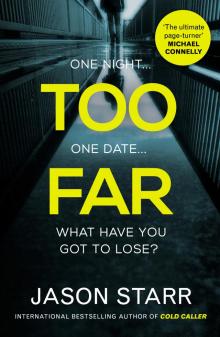 Too Far
Too Far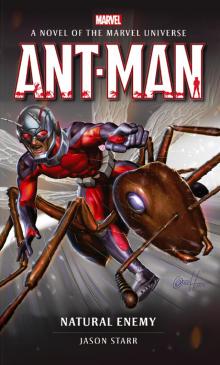 Ant-Man
Ant-Man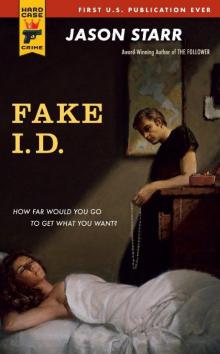 Fake I.D.
Fake I.D.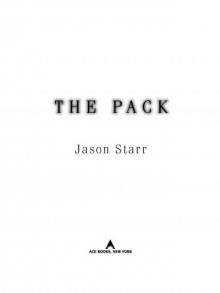 The Pack
The Pack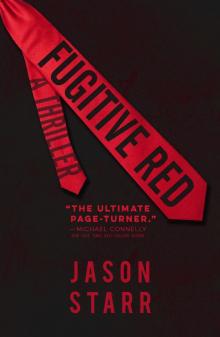 Fugitive Red
Fugitive Red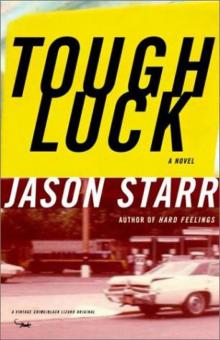 Tough Luck
Tough Luck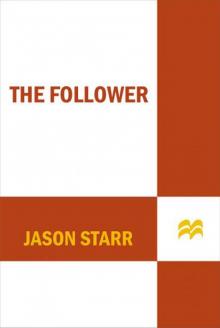 The Follower
The Follower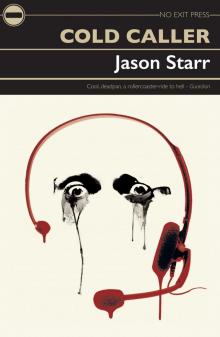 Cold Caller
Cold Caller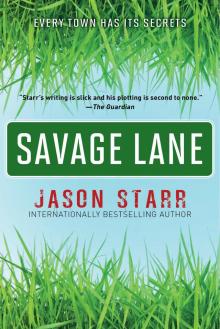 Savage Lane
Savage Lane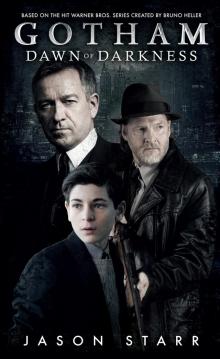 Gotham
Gotham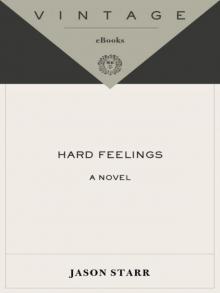 Hard Feelings: A Novel
Hard Feelings: A Novel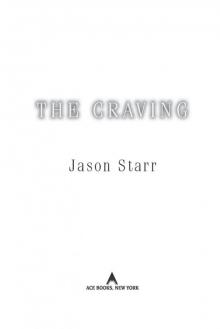 The Craving
The Craving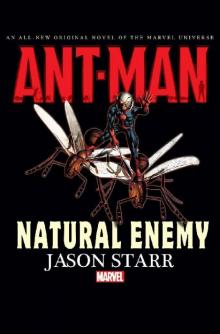 12 Ant-Man Natural Enemy
12 Ant-Man Natural Enemy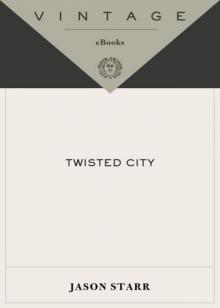 Twisted City
Twisted City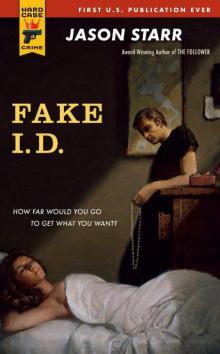 Fake I.D. hcc-56
Fake I.D. hcc-56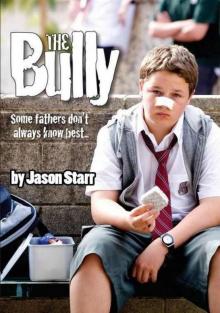 The Bully
The Bully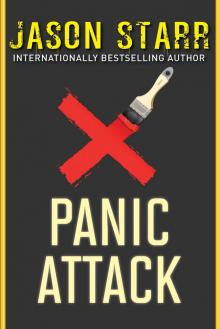 Panic Attack
Panic Attack